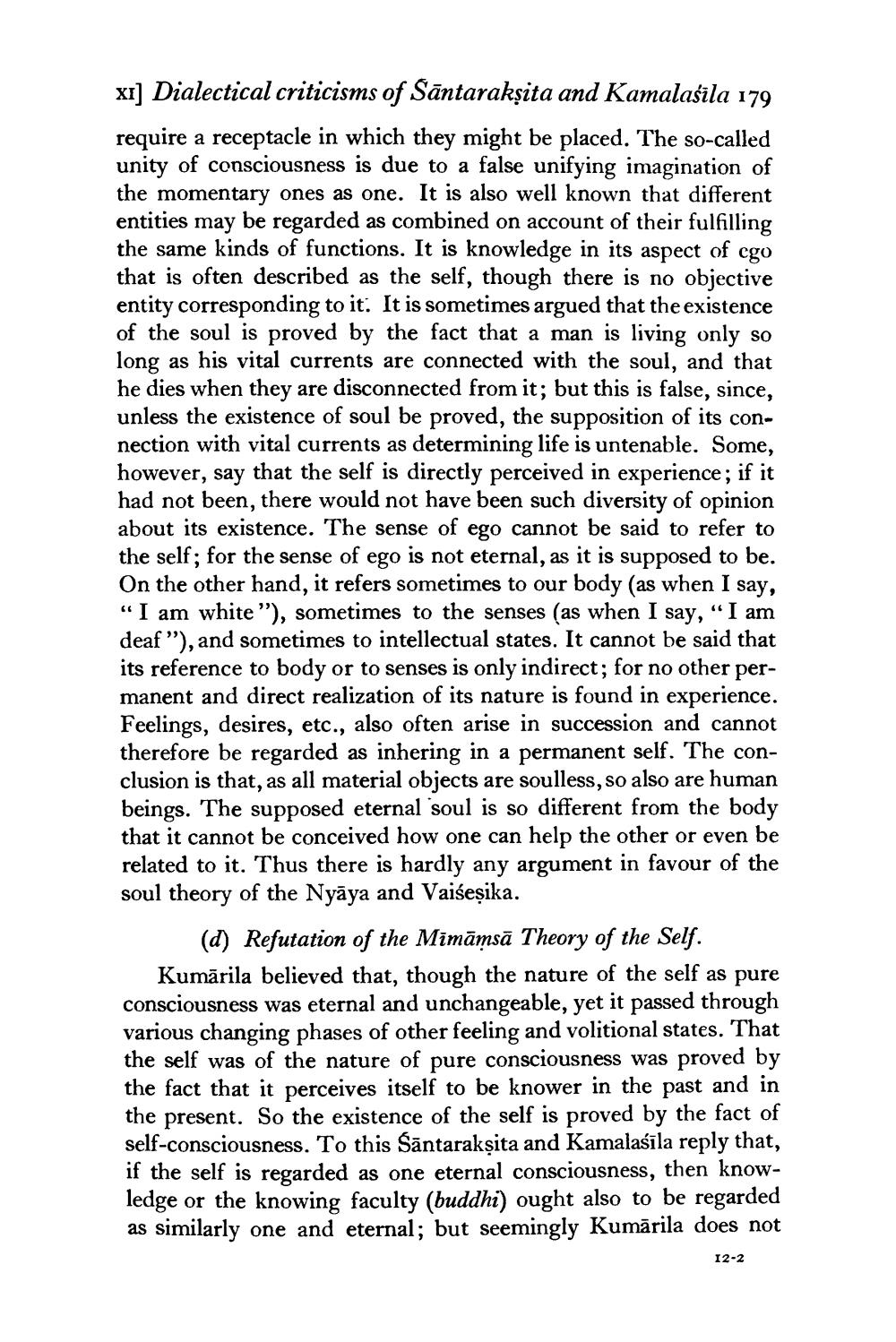________________
XI] Dialectical criticisms of Santarakṣita and Kamalasila 179
require a receptacle in which they might be placed. The so-called unity of consciousness is due to a false unifying imagination of the momentary ones as one. It is also well known that different entities may be regarded as combined on account of their fulfilling the same kinds of functions. It is knowledge in its aspect of cgo that is often described as the self, though there is no objective entity corresponding to it. It is sometimes argued that the existence of the soul is proved by the fact that a man is living only so long as his vital currents are connected with the soul, and that he dies when they are disconnected from it; but this is false, since, unless the existence of soul be proved, the supposition of its connection with vital currents as determining life is untenable. Some, however, say that the self is directly perceived in experience; if it had not been, there would not have been such diversity of opinion about its existence. The sense of ego cannot be said to refer to the self; for the sense of ego is not eternal, as it is supposed to be. On the other hand, it refers sometimes to our body (as when I say, "I am white"), sometimes to the senses (as when I say, "I am deaf"), and sometimes to intellectual states. It cannot be said that its reference to body or to senses is only indirect; for no other permanent and direct realization of its nature is found in experience. Feelings, desires, etc., also often arise in succession and cannot therefore be regarded as inhering in a permanent self. The conclusion is that, as all material objects are soulless, so also are human beings. The supposed eternal soul is so different from the body that it cannot be conceived how one can help the other or even be related to it. Thus there is hardly any argument in favour of the soul theory of the Nyāya and Vaiśeṣika.
(d) Refutation of the Mimamsa Theory of the Self.
Kumārila believed that, though the nature of the self as pure consciousness was eternal and unchangeable, yet it passed through various changing phases of other feeling and volitional states. That the self was of the nature of pure consciousness was proved by the fact that it perceives itself to be knower in the past and in the present. So the existence of the self is proved by the fact of self-consciousness. To this Sāntarakṣita and Kamalaśīla reply that, if the self is regarded as one eternal consciousness, then knowledge or the knowing faculty (buddhi) ought also to be regarded as similarly one and eternal; but seemingly Kumārila does not
12-2




